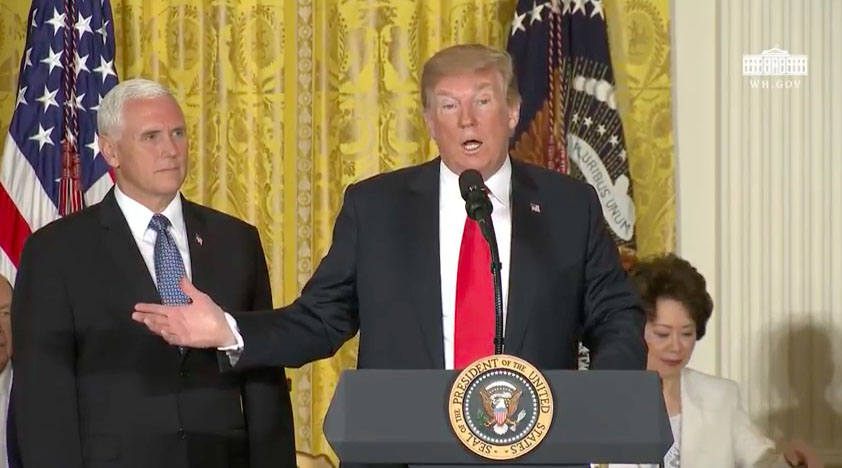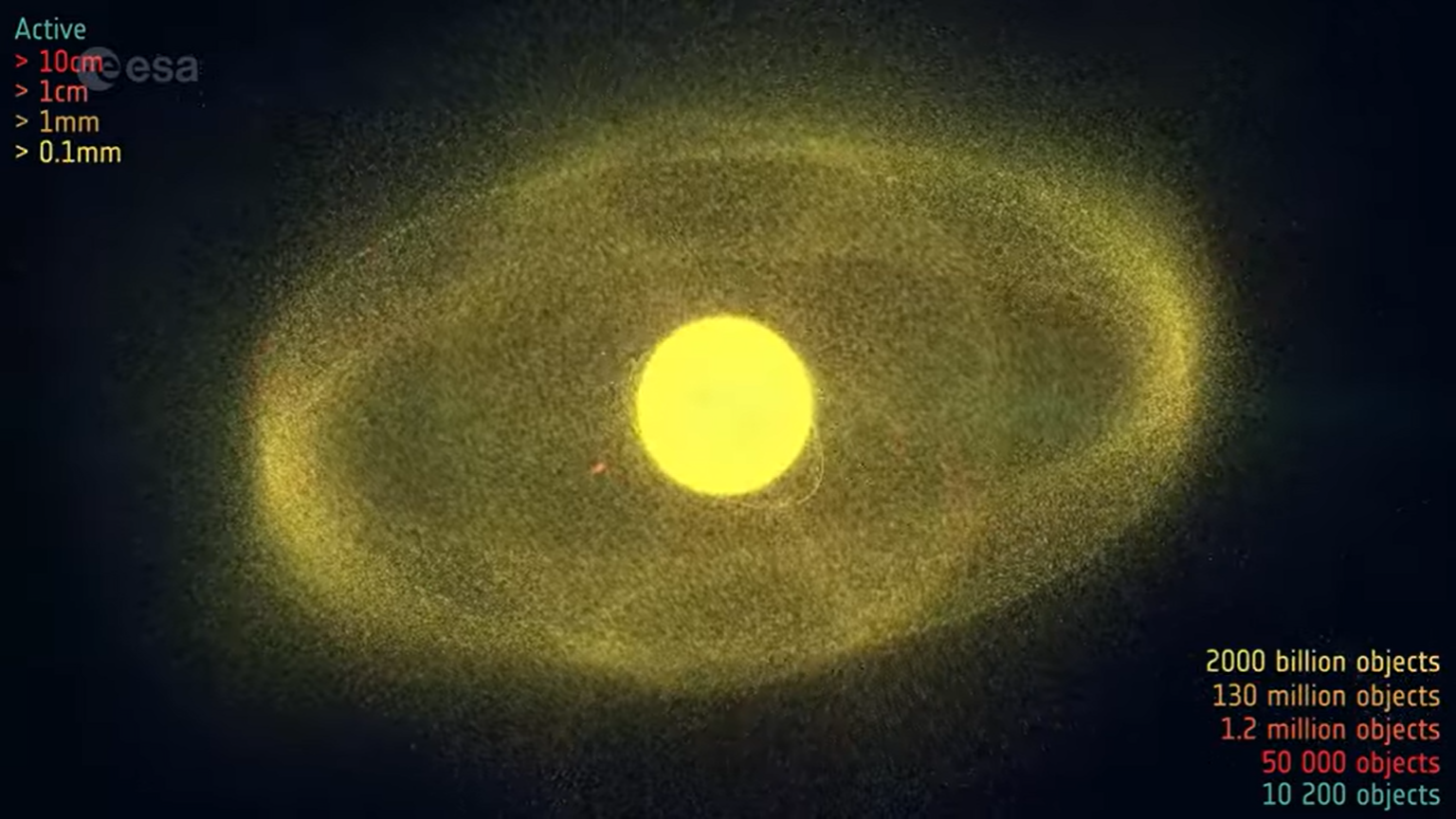Trump: 'We Are Going to Have the Space Force'
WASHINGTON — President Trump on Monday threw a wrench into the Pentagon's carefully laid out plans to analyze how best to reorganize the military's space forces. In remarks kicking off a meeting of the National Space Council, Trump pointedly directed the Pentagon to create a Space Force as a "separate but equal" branch of the U.S. military.
"We are going to have the Air Force, and we are going to have the Space Force. Separate but equal. It is going to be something," Trump said. "I'm hereby directing the department of Defense and the Pentagon to immediately begin the process necessary to establish a Space Force as the sixth branch of the armed forces. That's a big statement."
Addressing Gen. Joseph Dunford, chairman of the Joint Chiefs of Staff, Trump said, "If you would carry that assignment out, I would be greatly honored."[Presidential Visions for Space Exploration: From Ike to Trump]
According to sources, Trump's remarks were not off-the-cuff. He had planned to make this announcement weeks ago, and Pentagon officials had been advised the president would be directing the creation of a Space Force at the June 18 National Space Council meeting. Trump mentioned his desire to have a Space Force at four different events in recent months, and the feedback he received was mostly positive, which motivated him to get the process started sooner rather than later.
So what comes next? Congress has to rewrite Title 10 of the United States Code that outlines the roles and missions of the armed forces. "The president proposes, but Congress disposes," pointed out Doug Loverro, former deputy assistant secretary of defense for space policy. Loverro is an adviser to congressional committees and has been a proponent of a separate military service for space.
"Only Congress can organize the military," Loverro told SpaceNews.
The National Defense Authorization Act of 1947 created the Air Force. The Air Force today oversees about 90 percent of the military's space funding, programs and personnel. Conceivably the 2019 NDAA that is now going through the legislative cycle could create the Space Force, Loverro said, although Congress would have to give the Defense Department at least one or two years to execute such a large reorganization.
Breaking space news, the latest updates on rocket launches, skywatching events and more!
"General Dunford can do a lot in preparation for it," he said. "But at the end of the day it requires Congress to create a new service."
According to a defense official, "The Joint Staff will work closely with the Office of the Secretary of Defense, other DoD stakeholders and the Congress to implement the President's guidance."
At the White House on Monday, Trump talked about the Space Force in the context of his broader concerns about the United States' dominance in space being challenged by China and Russia.
Although he believes the military today is dominant in space, he wants more, Trump told Dunford: "Congratulations on your tremendous success but we're going to have far more success."
Creating a Space Force and promoting space exploration by NASA and the private sector will be "important for the nation's psyche," he said. "It's going to be important monetarily and militarily. … We don't want China and Russia and other countries leading us. We're going to be the leader by far."
White House spokesman Raj Shah said in a statement that the president wants the Pentagon to immediately begin the process to organize a Space Force. "The president's National Strategy for Space calls for American leadership, preeminence, and freedom of action in space, and he sees a separate service focused on space as a critical piece of that end state," said Shah. "The National Space Council and other White House offices will work closely with the Department of Defense on successful implementation of the president’s direction."
The president's directive sets the stage for a contentious debate as the House and Senate prepare to hash out a final version of the 2019 NDAA. The House almost certainly will be enthused by the presidential push for a Space Force. In the past two years it has led efforts to create a Space Corps, but the legislation was opposed by the Senate and by the Pentagon.
"Last year out of a lot of frustration and a commitment to do better in space, we set up a separate Space Corps," Chairman of the House Armed Services Committee Mac Thornberry told reporters last week. The committee feels strongly that the U.S. military has to be better prepared and equipped to dominate in space, Thornberry said. "As we get all these briefings about what adversaries are doing, our dependence on space, it’s clear that we have to do better,” he added. “Organizational changes don’t fix all the problems. But on the other hand they can sometimes help make sure space gets the kind of priority it should have, like cyber, as a domain of warfare."
A tweet by Sen. Bill Nelson, a Florida Democrat that is closely involved in space issues, suggested the president should not yet assume the Space Force is a done deal. "The president told a U.S. general to create a new Space Force as a sixth branch of the military, which generals tell me they don't want," Nelson tweeted on Monday. "Thankfully the president can’t do without Congress because now is NOT the time to rip the Air Force apart. Too many important issues at stake."
This story was provided by SpaceNews, dedicated to covering all aspects of the space industry.

Jeff Foust is a Senior Staff Writer at SpaceNews, a space industry news magazine and website, where he writes about space policy, commercial spaceflight and other aerospace industry topics. Jeff has a Ph.D. in planetary sciences from the Massachusetts Institute of Technology and earned a bachelor's degree in geophysics and planetary science from the California Institute of Technology. You can see Jeff's latest projects by following him on Twitter.


